When you’re finished using outdoor electrical wiring, it’s important to cap it off properly. Capping off electrical wires keeps rain and snow from getting into the wiring, which could cause a short or electrocution. There are many ways to do this, but the most common is to use a plastic or metal closure cap. Wire caps can protect you from fire and bad damage and keep your house safe. You have come to the right place if you want to know how to cap off outdoor electrical wires.
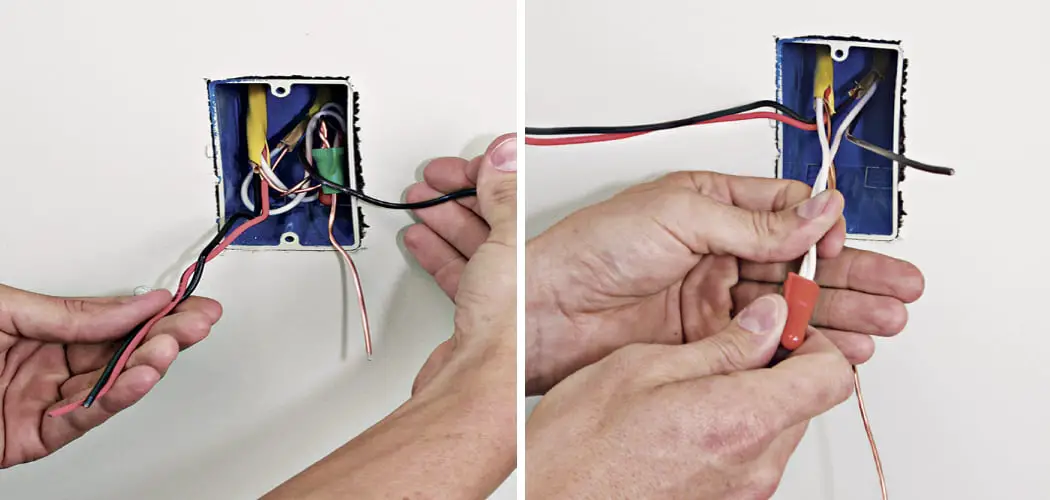
When to Cap Electrical Wires?
When electrical wires aren’t in use, leaving exposed wires that are not securely capped is unwise. It is dangerous to lay exposed cords across a floor and cause possible injuries. In addition, this is why it is good to secure cables when they are not being used, as it helps to avoid the possibility of electrical accidents. It’s also important to keep wires from being exposed to the ground to prevent the possibility of an electrical fire.
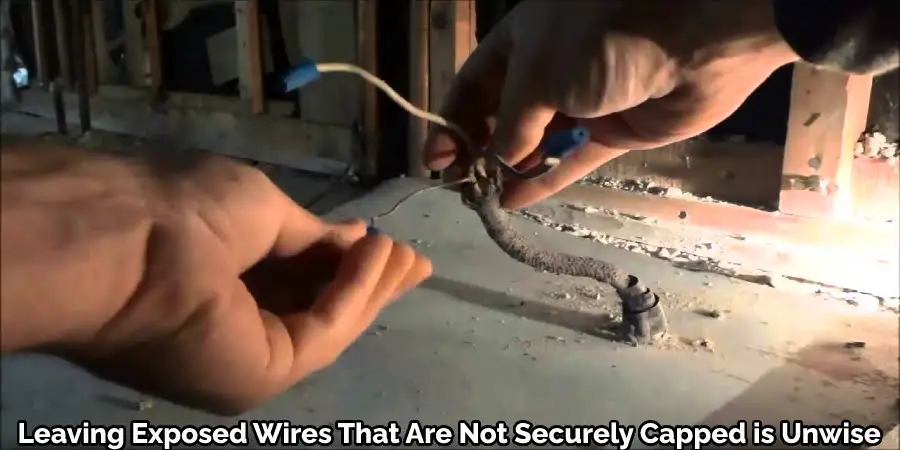
Capping Methods
Safely Capping outdoor electrical wires can seem a daunting task. But fortunately, there are different methods available to cap off outdoor electrical wires. One way is using a wire nut. You can also use electrical tape. But the Wire nut method is more reliable than the electrical tape method. Here we will discuss both methods for capping off outdoor electrical wires.
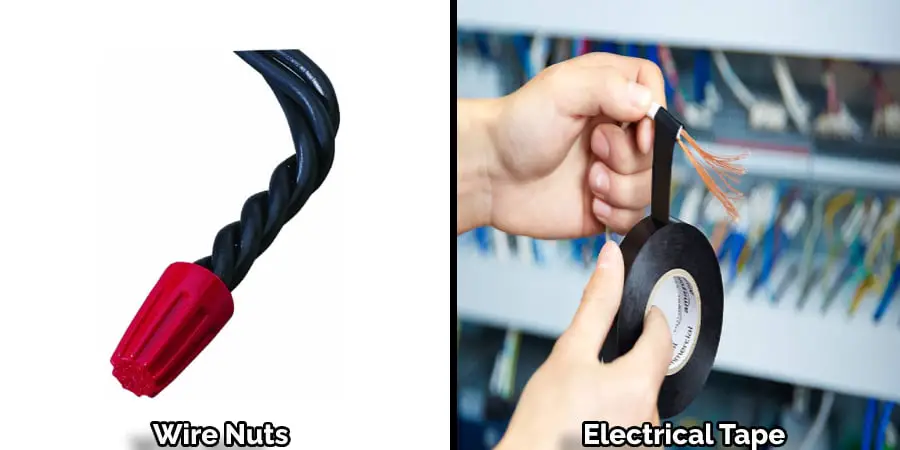
Tools You Will be Needed
To complete your task properly, you will need to gather some tools such as
Wrenches
Wire Cutters
Pliers
Electrical Tape
Preparation
Outdoor electrical wiring can be a safety hazard, so it’s important to take the necessary preparations when working with it. Some Important preparatory steps are discussed below
1. Shut off the power to the circuit at the breaker box.
2. Make sure you have the right tools for the job. Outdoor wiring typically uses larger gauge wire than indoor wiring, so you’ll need a pair of lineman’s pliers and a wire stripper that can handle thicker wire.
3. Protect yourself from possible shock by wearing rubber gloves and boots and rubber-coated sleeves.
4. If you’re working on a tree or other elevated surface, use a safety harness to prevent falls.
5. Plan your work so that you have plenty of slack in the wires to allow for movement.
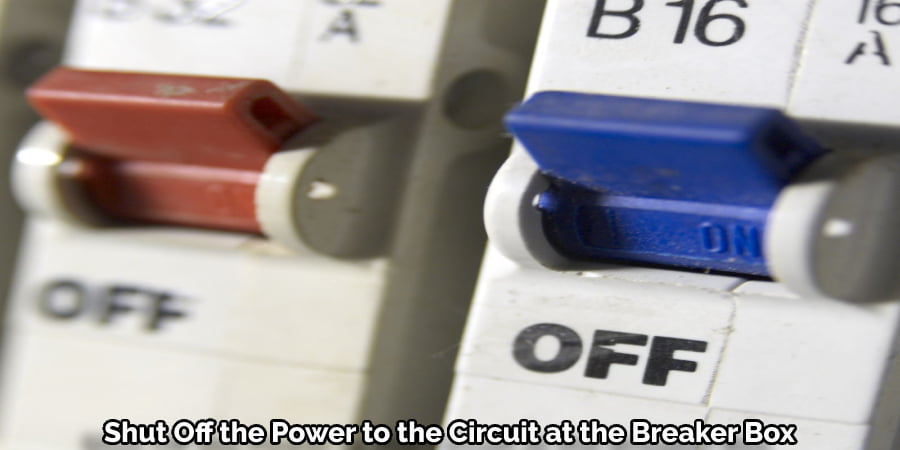
How to Cap Off Outdoor Electrical Wires
Some effective and comparatively easy methods for capping off outdoor electrical wires are discussed below
Wire Nut Method
Using the wire nut method is one of the best ways to terminate your electrical wires. There are two types of wire nut available in markets such as metal wire nut and plastic wire nut. Below, I will demonstrate the wire nut method to cap off electrical wires.
If you have an outdoor electrical wire that needs to be capped, you can use wire nuts. Wire nuts are small plastic caps that fit over the ends of electric wires. They are used to create a seal and ensure the wires don’t come apart. Screw the two wires together and plug the wire nut on top. You can also use wire nuts to seal wires in the wall or ceiling.
Pros and Cons
Wire nuts have pros and cons. One pro is that they are very safe and secure and can hold considerable torque. This means that they are less likely to come loose over time. Another pro is that they are economical and straightforward to use. A con is that people can get stuck with these if they’re too tight, which can be a problem if you need to replace the current cable. Another con is that they can be a fire hazard if not used properly.
Electrical Tape Method
Suppose you want to know how to cover exposed wires outside using the electrical tape method, congratulations! You are in the right place. In this section, we are going to discuss the process to cap off outdoor electrical wires using electrical tape.
When performing wiring outdoors, be sure to cut off your appliance wiring loose ends to protect them from the elements. A method that will help you achieve this is by wrapping electrical tape around the ends of the wire. First, be sure to clear away any debris on the wires, so they are clean enough to tape. Then, wrap electrical tape several times around the wire, making sure to cover the ends of the wire completely.
Pros and Cons
When using electrical tape for cable capping, there are both pros and cons to consider. Using electrical tape is a quick and relatively inexpensive way to wrap up outdoor electrical wires. On the other, it’s a readily available and reasonably inexpensive product that you can obtain from any hardware store. Finally, electrical tape is already pre-cut to your desired length, so it’s a speedy and easy way to wrap up wires.
On the other hand, there are some drawbacks to using electrical tape. It can be difficult to get a tight seal with tape, which could lead to potential water or air infiltration.
Tips and Tricks
When capping off outdoor electrical wires, there are a few tips and tricks to keep in mind. First, make sure the wire is completely severed before capping it off.

Precaution
While capping electrical wires, you need to follow some precautionary measures for your safety. If you are using a tool to cap off an electrical wire, be sure to clip the wire off first so that it is shorter than the cap. If you are using your hands to do the job, make sure that your hands are dry and not standing in water. Also, be sure to touch the cap and not the wire when connecting them.
Conclusion
In conclusion, properly capping off outdoor electrical wires is important for the safety of your home and family. Make sure to use the correct type of cap for your wire, and follow the installation instructions carefully. By doing so, you can enjoy peace of mind knowing that your wiring is properly protected.
Frequently Asked Related Questions
What Is an Exposed Wire?
An exposed wire is a wire that is visible and uncovered by any other materials. This can be dangerous because it can create a fire risk if it comes into contact with something flammable. It can also cause an electric shock if it comes into contact with someone who is touching a metal object.
What to Do With Exposed Electrical Wires?
When electrical wires are exposed, it is important to take some preventative measures to avoid electrical shock. First, turn off the power to the circuit at the breaker box. Next, use a non-conductive material, like duct tape or a piece of wood to cover the wires. Keep an eye on yourself, your children, and your pets, so you don’t touch the electrical wiring yourself. If you need to work on the wiring, wait for a qualified electrician to do so.
What Are White and Black Wires?
White and black wires are two types of electrical wiring. They are named for their colors, which are used to identify them in a wiring diagram. White wires are usually used as the “neutral” wires in a circuit, meaning they carry no electricity. Black wires are usually used as the “hot” wires in a circuit, meaning they carry electricity.
What Are Blue Electrical Wires?
Electricity is a type of energy that is created by moving electrons through a conductor. In order to move electrons, you need a voltage or potential difference. This is why blue wires are often used in electrical systems because they have a higher voltage than other wire colors. Using blue wires can create a larger potential difference and move more electrons through the system.
What to Do With Unused Electrical Wires?
There are a few things that you can do with unused live electrical wires. They can be capped off and left alone, they can be used as part of a new electrical circuit, or you can remove them from the premises. If the wires are capped off and left alone, it is important to ensure that they are not touched, as they could still cause an electrical shock.
It would be best if you were careful when handling live wires in order to avoid electrical shock or other injuries. Here are some tips on how to properly dispose of live electrical wires:
-Call a hazardous waste disposal company to pick up the wires.
-Cut the ends off of the wires and keep them in a plastic bag.
-Take the bag to a hazardous waste disposal company.
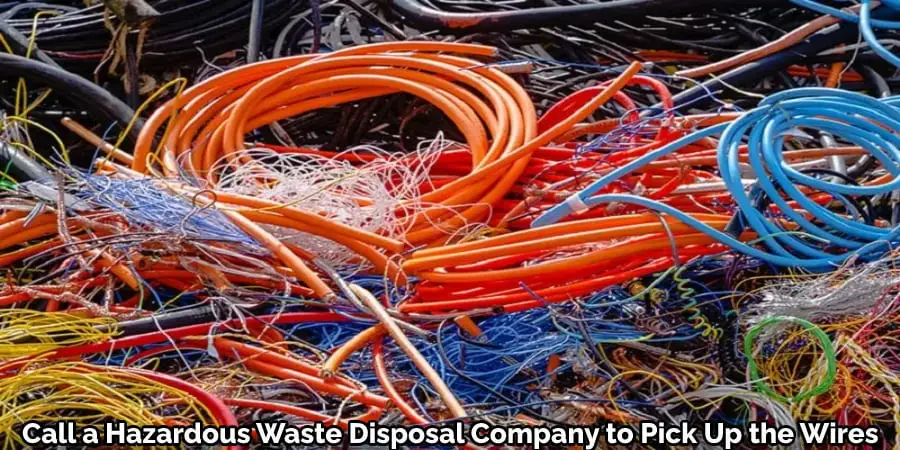
How Do You Know if Wire Is Exposed?
When assessing the safety of electrical wires, one of the key factors to consider is whether or not the wire is exposed. Exposing electrical wire can create a number of hazards, including shock and fire. To determine if the electrical wire is exposed, one should look for any signs of damage to the insulation that surrounds the wire. If the insulation is torn, cracked, or missing, then the wire is exposed and should be repaired immediately.
Other Useful Resources That You May Want to Check Out
How to Find First Outlet in a Circuit
